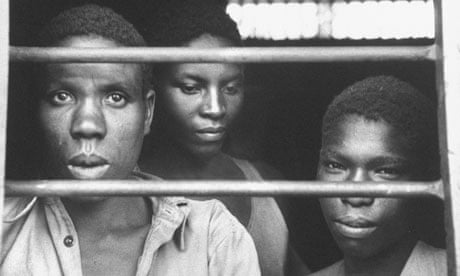The high court will shortly issue a verdict in a case brought before it by three elderly Kenyans who are suing the British government for damages. They, like many other Kikuyu people, suffered internment and torture during the brutal emergency rule imposed in the 1950s by Kenya's colonial government as it attempted to repress a violent uprising led by the Kenya Land and Freedom Army or "Mau Mau". Tens of thousands were killed while others endured systematic abuse including long internment, rape and castration. Given the recent emergence of "lost" documents pointing to the Foreign Office's awareness of these abuses, the British government does not deny the abuse but argues it is not liable for out-of-date claims against a past colonial administration.
Public arguments about this case have focused on whether present-day governments and taxpayers should be legally and financially accountable for the misdeeds of past regimes. Critics argue that judicial discretion to allow such cases to proceed will create a slippery slope of blanket entitlements. In fact, given the time elapsed, only a limited number of living victims would be eligible to bring direct personal injury claims: a fourth Kenyan claimant also died recently. It is true that the perpetrators of specific crimes will go unpunished by virtue of being dead. But should there be no collective national recognition in relation to British imperial misdeeds? It is odd that political leaders repeatedly call on this nation to take pride in what they regard as Britain's imperial achievements but want nothing doing with the injustices also intrinsic to imperialism.
Whatever the high court's verdict, this landmark case asks larger questions of Britain, the answers to which go beyond apologies and monetary reparations. How should Britain and Britons deal with the (not all that distant) imperial past? From racial hierarchies to artificial national borders and a deeply inequitable economic system which enshrined as a core principle the devastating profiteering we see around us, imperial history still shapes all our lives within Britain and beyond.
Its legacies are unfortunately not all about railways, parliamentary democracy and the English language. In the Kenyan case, the building of the railway itself had grim consequences including mass displacement and thousands of "coolie" deaths. The creation of an English-speaking elite in India, which benefits a minority like me, still disadvantages millions. Can reparations really be made for what took place under colonial rule across Asia, Africa and the Caribbean or, indeed, closer to home in Ireland? How do you compensate people for the ways in which their circumstances have been shaped by stolen lands, enslaved or massacred ancestors, expropriated resources, imposed languages, forced labour, artificial national boundaries, geographical displacement, avoidable famines, discriminatory taxation or institutionalised racial hierarchies?
An essential discussion about the past that all nations have to undertake has been repeatedly shut down here by strident and influential voices from Niall Ferguson and David Starkey to Gordon Brown and Michael Gove insisting the good done under imperial rule outweighs the abusive aberrations; that it is unnecessary to apologise for empire or that it's all just politically correct grievance politics: we should simply turn the page and move on. By refusing to let systemic atrocities be swept under the government filing cabinet, the Mau Mau case offers Britain an opportunity to begin what philosopher Theodor Adorno called a "serious working through of the past" precisely in the interests of moving on rather than institutionalise an amnesia that "justifies what is forgotten".
Undoing imperial amnesia will enable us to flesh out Britain's "island story" towards a more honest account of how Britain came to be what it is today, socially and economically. Unlike Danny Boyle's interesting "people's history" Olympics extravaganza, it would remind us that this country's multicultural history did not begin a few decades ago with the Empire Windrush but is also tied to the dislocations of empire. It is time to stop segregating majority "indigenous" history from that of immigrants and minority communities when they are so profoundly connected by empire. Antiguan writer Jamaica Kincaid asks: might not knowing why we are the way we are, why we do the things we do, why we live the way we live, lead us to a different, relationship with the world and with each other? This case invites us to begin answering it together.






